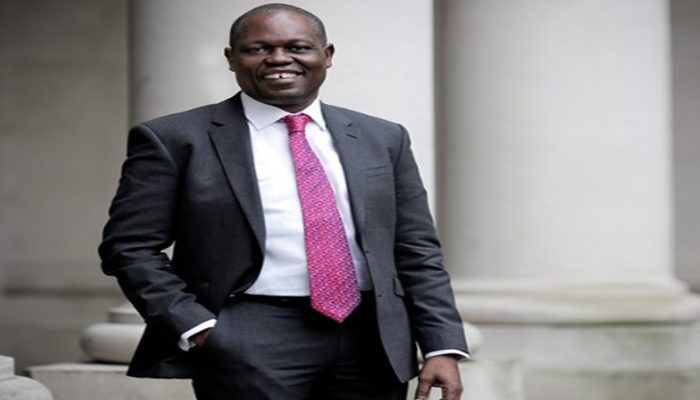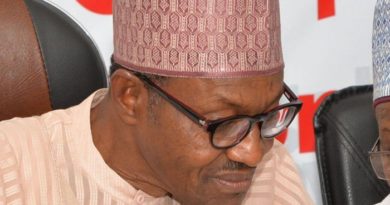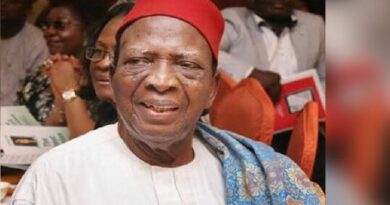Ecobank CEO speaks into future of the pan African bank
In a recent panel on the sidelines of the World Economic Forum on Africa, Senegal’s President Macky Sall called Ecobank ‘our bank’. The bank was founded to encourage regional integration. Today, it has the largest footprint of any bank in Africa, and is still a rare ‘pan-African conglomerate’. As such, its success, for symbolical reasons, is important for the continent. Last year the bank posted its first loss in many years, following an $800m impairment charge in Nigeria. Nevertheless, the bank has performed strongly across its other markets and its CEO, Ade Ayeyemi (pictured, right), is confident that it will perform well in 2017. In this exclusive interview with New African he puts the record straight and talks up the opportunity presented by financial inclusion and how regulators have supported the bank’s experimental approach with technology.
In the latest annual report you spoke of the “frustrating reality of poor financial performance” following the loss in 2016 – although you have made a profit so far this year. So, what happened last year?
You will see that on a pre-impairment basis the bank made a profit of about $733m. If you look at that on a constant dollar basis [taking into account currency devaluations] our performance would have been in the region of $800m.
The reason I used the words ‘frustrating reality’ is because of the impairment we took. It’s frustrating because the people that worked [across our other units] in 2016 actually did create value. If we had taken the same level of impairment as our competitors, we would have been the most profitable bank on the Nigerian Stock Exchange.
Still, an impairment of $800m is a lot of money lost.
It’s a very high amount; we don’t deal with it casually. We were very deliberate. But we also want to have a transparent book; we want to have a book that reflects reality. We work in an economy where there was an economic contraction last year. In Europe when there were contractions, Deutsche Bank made a loss two years in a row, as did Credit Suisse; last year Standard Chartered made a loss.
We are not saying this is ‘usual’, nor do we want to be in that camp – but when you are dealing with a problem, it’s always better to recognise a problem properly and to reset the bank to be able to move forward.
I heard that the shareholders weren’t necessarily in agreement, or didn’t necessarily approve a capital-raising exercise, but I saw that you recently issued a convertible bond for $400m…
Again, I don’t deal with rumours. We said we are going to raise a convertible bond for $400m, and we’ve already preplaced $300m of this with existing shareholders, and that we are going to get shareholder approval in an EGM that is coming up in June.
So the shareholders are supportive?
The shareholders are supportive because at the end of the day, do we need the money to protect the firm? Yes. And the shareholders understand that. Now, not every shareholder will participate because everybody is looking at the investment case differently, but broadly we will get the support of the shareholders.
When we last spoke you mentioned that the objective is to have 100m customers by 2020; but your peers in the industry generate 70% of their revenue and profit from institutional clients. Does that mean you’re going to be primarily a retail institution?
We have a society in which a large number of households are not banked. In the advanced economies, banks generate a large proportion of their profits from that area.
In addition, the various donor flows to our continent are directed ultimately to individual beneficiaries; but what is happening today is that the flow goes to a central place, then the cash is distributed to the various beneficiaries.
Consider the transaction costs and look at the risk embedded in doing that. With our model, the donors can actually transfer the money directly to the ultimate beneficiary without going through intermediaries.
Today all small-scale traders, all the corner shops, take their daily sales to the bank at the end of the day. In the future all these collections will be done electronically. All of those developments allow us to be a critical player across the continent.
The M-Pesa experience in Kenya alone has demonstrated that people no longer use cash to buy things – now they buy electronically. People also make person-to-person transfers electronically. We can participate in all of this progress.
Going further, our QR Masterpass, for example, enables a woman selling fruits under a tree and without electric power, to transact electronically. This way you’ve created a solution that’s appropriate for a problem of the current society.
People will not have only one bank account, they will have several digital interactions. I don’t think that in the future people will have only one interaction with the bank and only one bank account, no, people will have multiple interactions with their banks.
What about project and infrastructure finance?
The big project financing will continue because we need to do them, but you need to capture the savings in a society to be able to have enough money to finance those big projects.
Keep in mind also that large public utilities, for example, must have ways of collecting fees from the users of their services or the projects become unviable. If, for example, you finance a power project, ultimately the household needs to pay for the power. If we can make that [payment] simple and electronic, then commercial losses will reduce significantly because people will be paying before they even use the services.
The reason why the mobile phone operators are successful is because they found a way to make people to pay before usage; now we need to get that model into the power industry as well.
This is a bottom-up approach that you’re advocating?
It’s an approach that recognises the flow of capital in the world economy – government, corporate, commercial and individual flows. When you recognise all those flows within the economy and you’re a bank, what you do is financial intermediation.
How have the regulatory bodies reacted to changes you’ve introduced in terms of new payment solutions and innovations in banking?
Every time you are changing something, the change creates a risk because it’s different from the norm. What we have done is engage with them and explain to them the changes. Regulators also have responsibilities and it’s always important for us to be ready to work with them to come to a common understanding. Now we are happy with where we are.
You’re a bank operating across multiple jurisdictions. You have mentioned that you’d like to see the regulators talking a little bit more to each other so that there’s some kind of uniform regulatory environment. Is this happening, and how can we make it happen?
For Ecobank, we have a college of supervisors that meets annually, where all our regulators come to meet our lead regulator, which is the Central Bank of West Africa based in Dakar. We also met with them during a summit [the] IMF [organised] in Mauritius.
We have also looked at how we can get the regulatory landscape to be level, so that banks can behave properly and nobody is taking advantage of regulatory arbitrage. So I think there’s progress there. What we need now is to get it done quicker and faster.
What is regulatory arbitrage?
Regulatory arbitrage is when you take advantage of two different regulatory environments for the same thing and you go to the place where the regulator is permissive. We don’t want that to happen because it just creates unnecessary problems for society.
I was talking to a leader in the infrastructure industry. He said one of the problems is that we don’t have large African corporates. This poses a constraint when it comes to taking on or originating large-scale transformative projects. Do you see this as a problem?
Big companies are important, and I mean companies that have a market capitalisation or turnover of one billion dollars and more. We have some on our books, but relative to the rest of the world, what we have is not sufficient.
You need the big companies because they have a big opportunity to do big things, and you need those big things to be able to move the rest of the small and medium- scale enterprises.
There’s always room for the small companies, there’s always room for the mom and pop companies, but there’s also a need to take the market structure in a particular direction, and that’s the role of big companies.
What do we need to do to create these?
To create that, we need to enable trade to be possible across borders, because it is when companies can trade beyond their local country that they have the capacity to become bigger.
Take the example of Togo. It has a population of 7.5m people. For Togo to sustain a $1bn company means that the company has to be trading in Togo, Ghana, Benin and so on, for the sort of volume it requires.
If a company in Kenya, or even South Africa, trades only within their own markets, they won’t have the opportunity to become big. The ability to trade across countries will allow us to have so many billion- dollar companies. All the billion- dollar companies are, by definition, trading beyond their countries. There is only a limited number of countries that are big enough to sustain large companies internally. Nigeria and South Africa have big internal markets but the rest do not have such sizeable internal markets.
You joined the bank around 18 months ago. Where are you in terms of your strategy?
We defined our strategy early in 2016: The first two years to fix problems and then the next three years to execute and move forward. We believe that we are making good progress with that. We are very proud of our technology, we’re very proud of our digital effort and we’re very proud of the uptake of the digital effort by our customers.
We’re also very proud that we are building a coalition with various outlets, for example, the petrol stations. We have partnered with these petrol stations to put in our bank services, quick express branches, where people can do simple banking activities, where we can deploy ATMs and people can actually go there and do banking transactions at those ATMs.
The branch model is changing. That’s why we have an agreement with insurance companies that want to use our branches as a place for doing their own insurance, subject to regulatory approvals.
So banking is being transformed then, or turned upside-down?
It’s no longer just a place where you pay cash and you receive cash. It’s now where you give advice to your customer. So, if those things are changing then the cash, which is what used to characterise the branches, will start moving away.
If you go to some of the advanced countries now, there are places where you go to a bank and there is no cash. When you need cash, you go to the ATM. If you think about it across our own network, more than 70 per cent of our transactions are digital as of today, and we’ve not got to the end point in terms of our strategy.
Credit: New African Magazine




